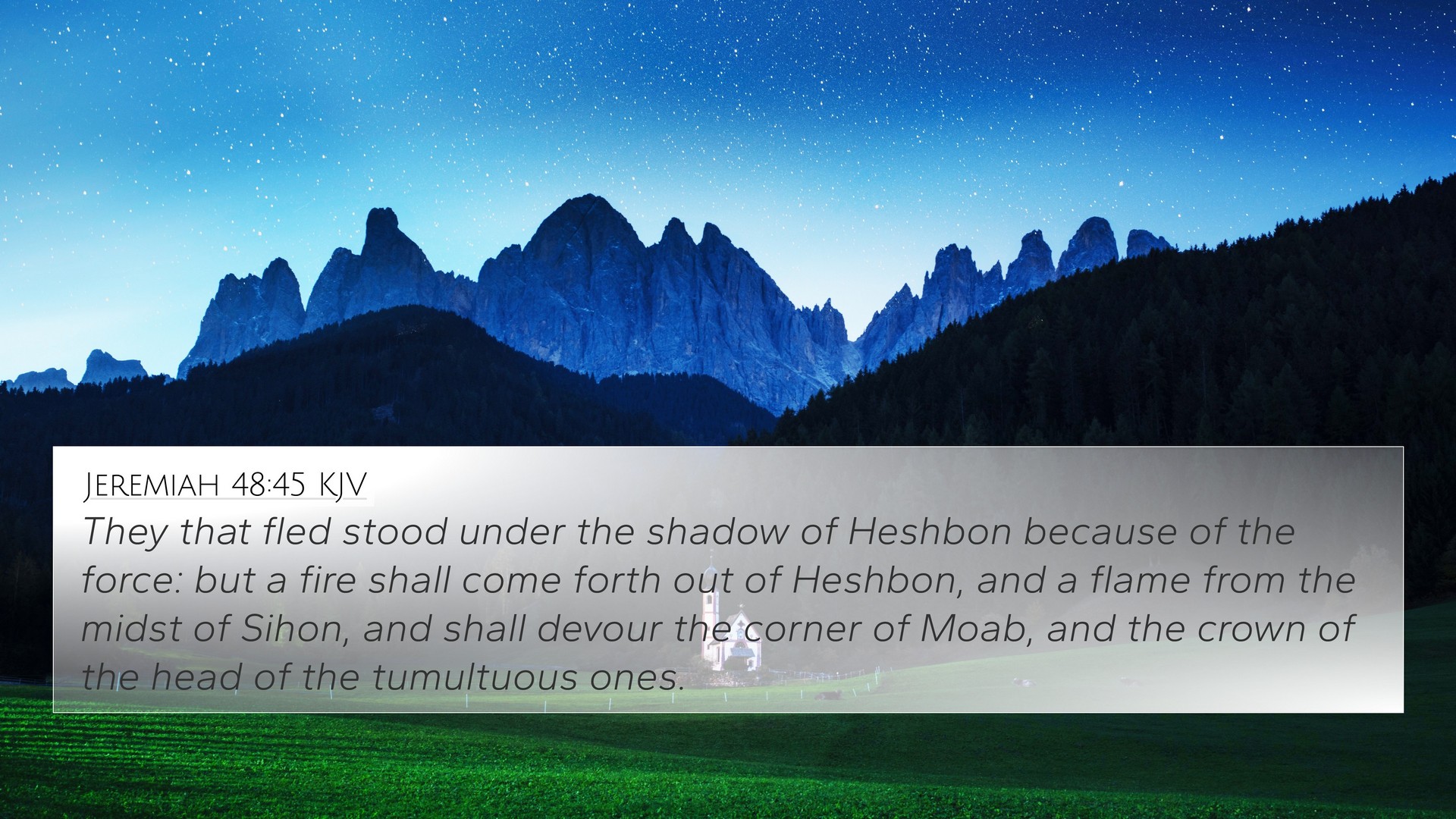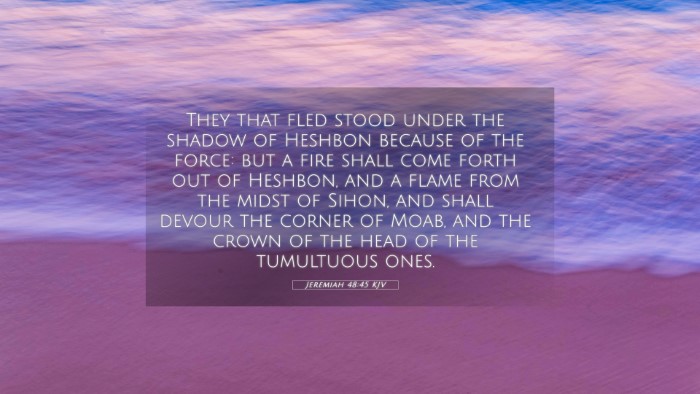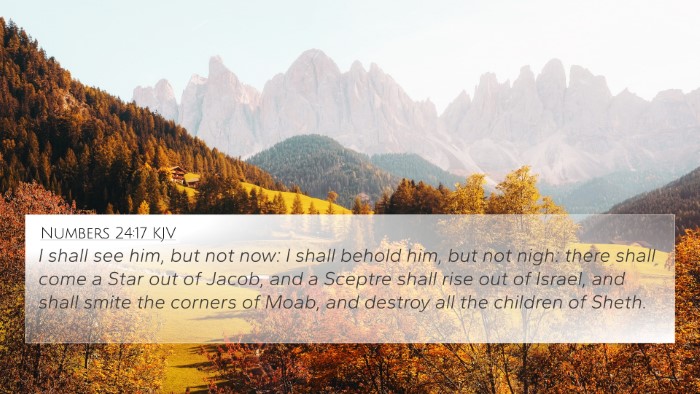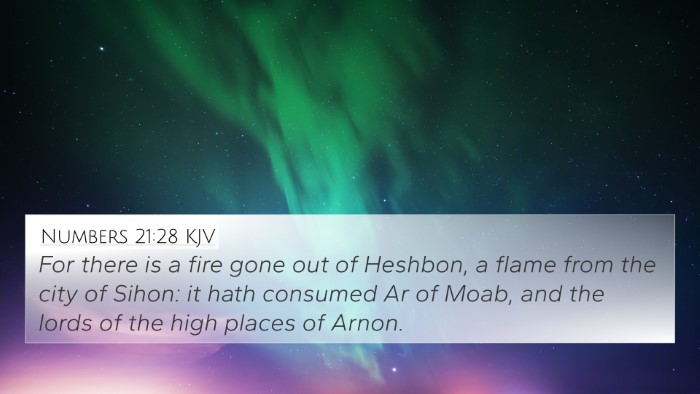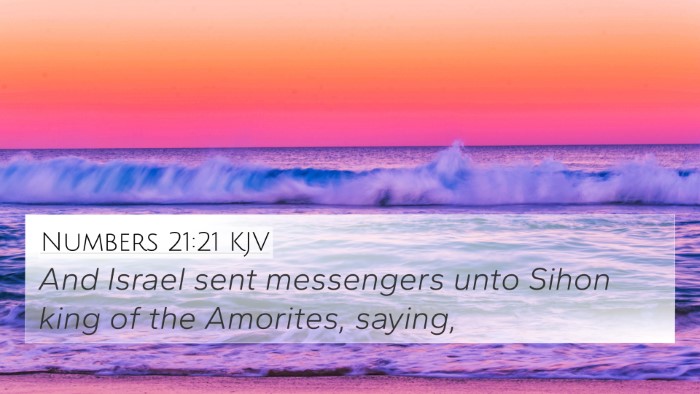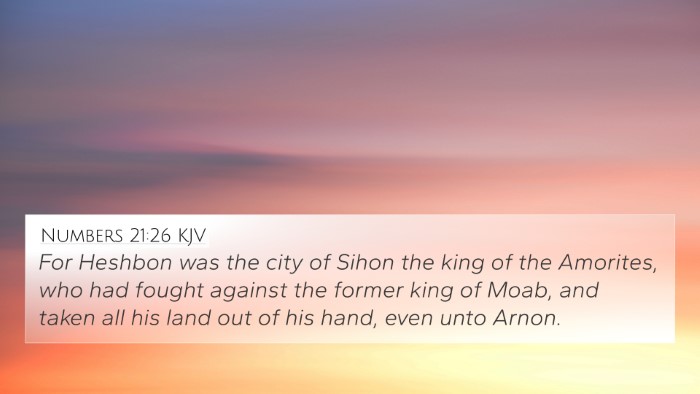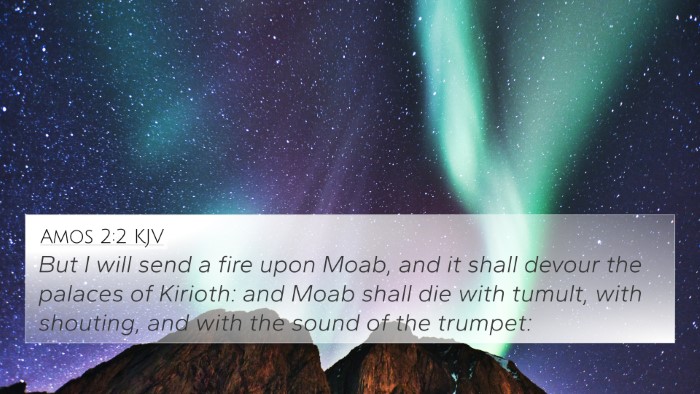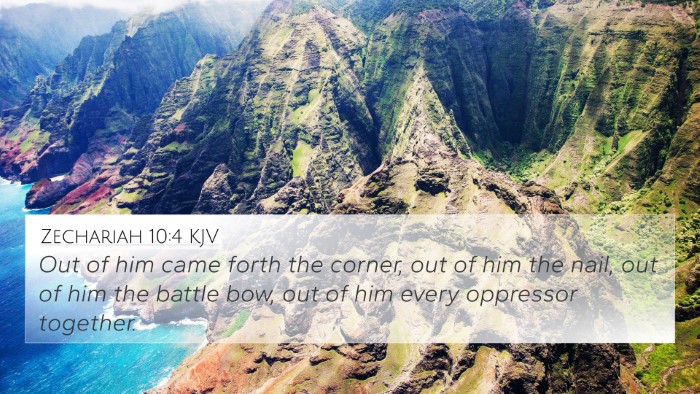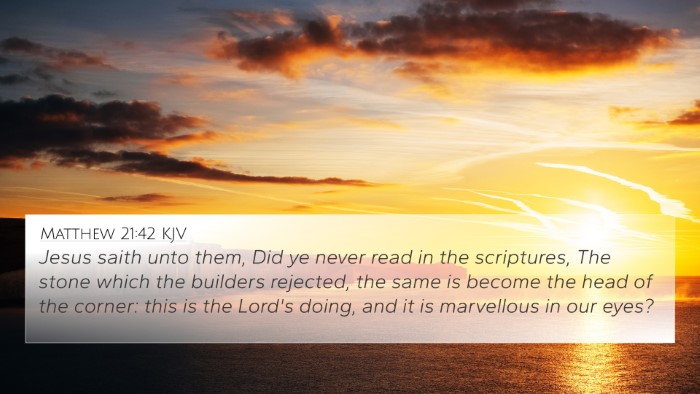Understanding Jeremiah 48:45
Jeremiah 48:45 reads, "They that fled stood under the shadow of Hesbon because of the force: but a fire shall come forth out of Hesbon, and a flame from the midst of Sihon, and shall devour the corner of Moab, and the crown of the head of the tumultuous ones." This verse carries significant meaning in the context of divine judgment upon Moab, symbolizing the impending destruction that God decrees against those who oppose Him.
Commentary Insights
The insights from various public domain commentaries elucidate the depth of this verse's meaning:
-
Matthew Henry: Henry notes that the "shadow of Hesbon" represents a temporary refuge for the fleeing inhabitants of Moab. He emphasizes that there is no true safety outside of God's will, and the fire from Hesbon indicates the certainty of judgment that will engulf both the stronghold and its inhabitants.
-
Albert Barnes: Barnes elaborates on the significance of Sihon and Hesbon, pointing out their historical context and connection to God’s judgment. He explains that the burning fire symbolically represents the fierce wrath of God. His commentary stresses that spiritual refuge is ultimately found in trusting the Lord, not in fortified cities.
-
Adam Clarke: Clarke emphasizes the metaphorical language used in the verse. He explains that the "fire" and "flame" symbolize divine judgment that will lead to desolation. Clarke’s commentary urges readers to recognize the seriousness of God’s pronouncements against sin, specifically in the context of the Moabites who rejected God's ways.
Bible Verse Cross References
This verse has several cross-references that enhance understanding and illuminate its meaning:
- Isaiah 15:1: The burden of Moab. It shows God's judgment upon Moab, connecting to Jeremiah’s prophecy.
- Numbers 21:26: Referring to Sihon, the king of the Amorites, providing historical context to understanding God’s judgment.
- Deuteronomy 2:24-25: God's instructions to Israel regarding the conquest of lands, reinforcing the theme of divine authority.
- Jeremiah 25:17-29: The mention of Moab's cup of wrath corresponds with the themes of judgment found in Jeremiah 48:45.
- Amos 2:1: The Lord's judgment on Moab is reiterated, highlighting the constancy of God's pronouncements against its sins.
- Malachi 4:1: The imagery of fire that consumes can also be seen in the context of final judgment, linking to the language used in Jeremiah.
- Sophoniah 2:8-11: Further discusses the affliction of Moab and informs the reader of the certainty of God’s judgment that directly ties back to Jeremiah's message.
Connections Between Bible Verses
Examining the links between these verses deepens the understanding of God's continued relationship with Moab and the unfolding of His plans for restoration and judgment:
- Linking Historical Context: The verses pertaining to Moab provided in Isaiah and Amos reinforce Jeremiah’s declaration. They reflect God's unchanging stance on sin and disobedience.
- Thematic Analysis: The themes of refuge and judgment recurrently appear in the Bible, as seen through these connections. This builds a profound understanding of God’s righteousness.
- Comparative Studies: One can perform a detailed cross-reference between Gospels when reflecting on the consequences of rejecting divine counsel, similar to the Moabites’ fate.
Bible Study Resources
For further studies, there are various tools for Bible cross-referencing that help in identifying and understanding these connections:
- Bible Concordance: Helps in locating specific verses and themes across the scripture.
- Bible Cross-Reference Guide: Offers a systematic approach to linking scriptures together, aiding in deeper study.
- Cross-Reference Bible Study: Engages in connecting verses that expand understanding, making Bible study more thorough.
- How to Use Bible Cross-References: Essential for any serious Bible student looking to expand their knowledge of Scripture.
Conclusion
Jeremiah 48:45 serves as a vivid reminder of God's judgment and the consequences of sin. The insights gathered from various commentaries and linked scripture serve as a foundation for deeper understanding. By employing tools for Bible cross-referencing and recognizing inter-Biblical dialogues, believers can enrich their spiritual lives and gain a holistic view of God's word throughout the Scriptures.
